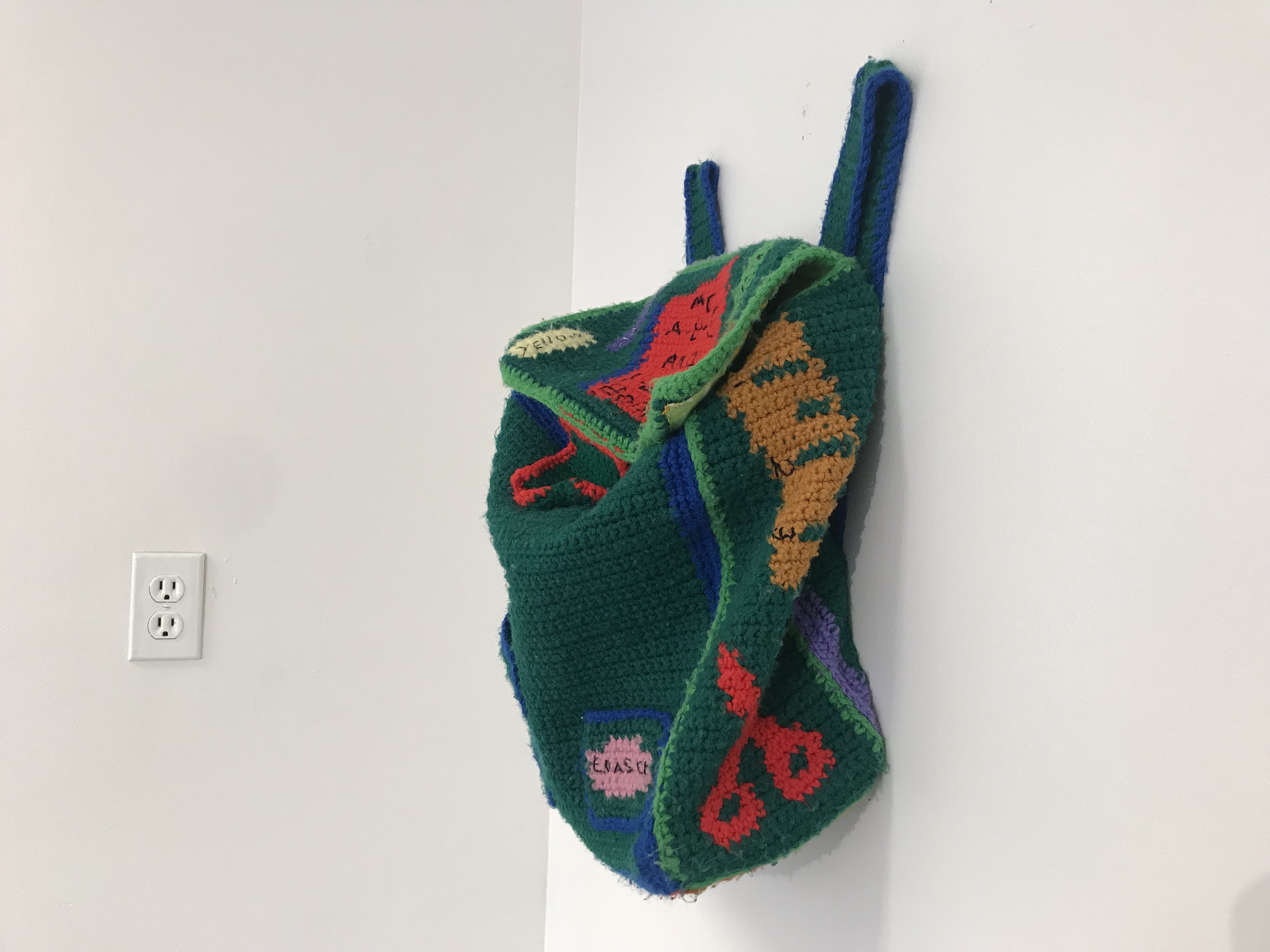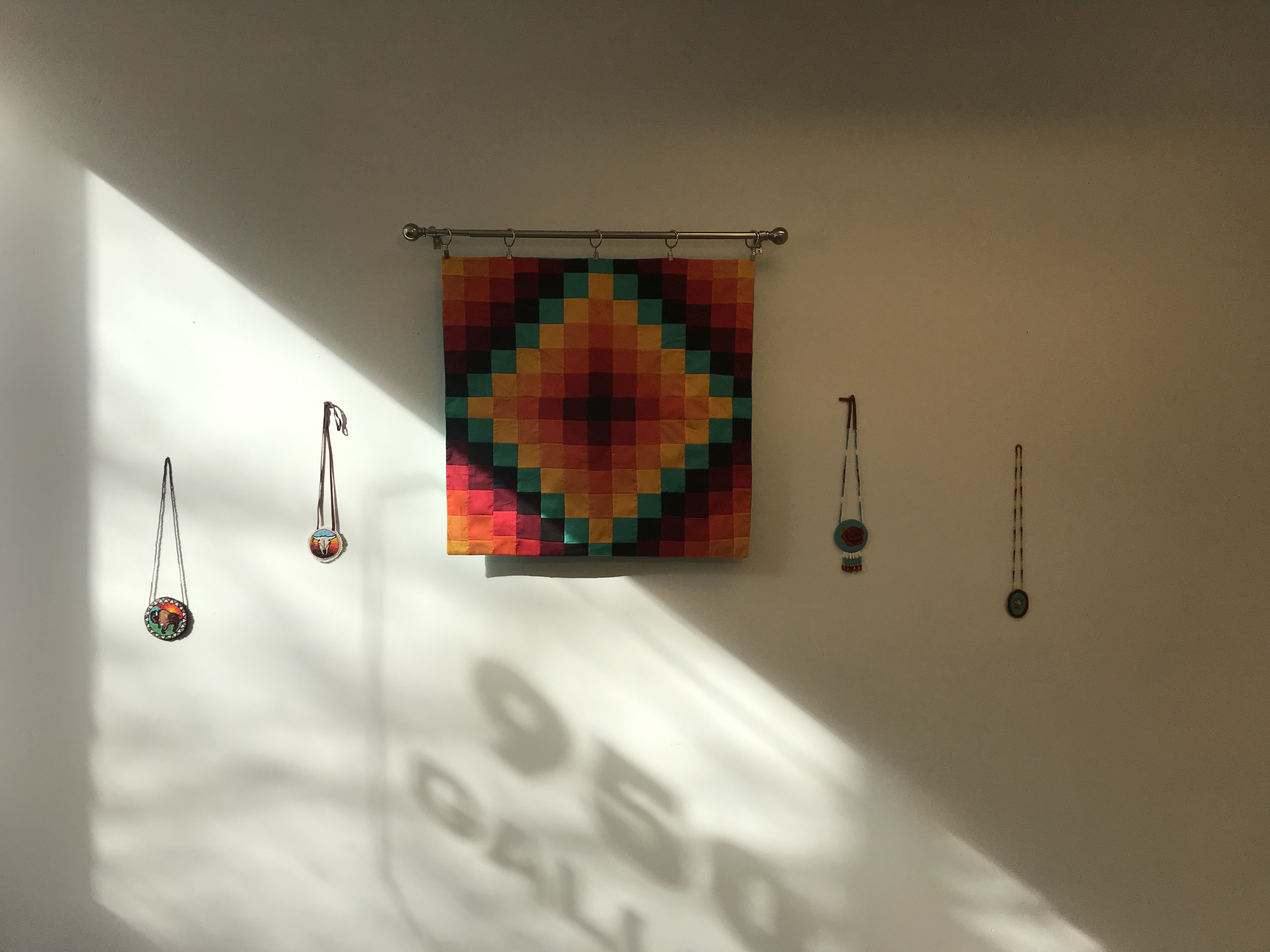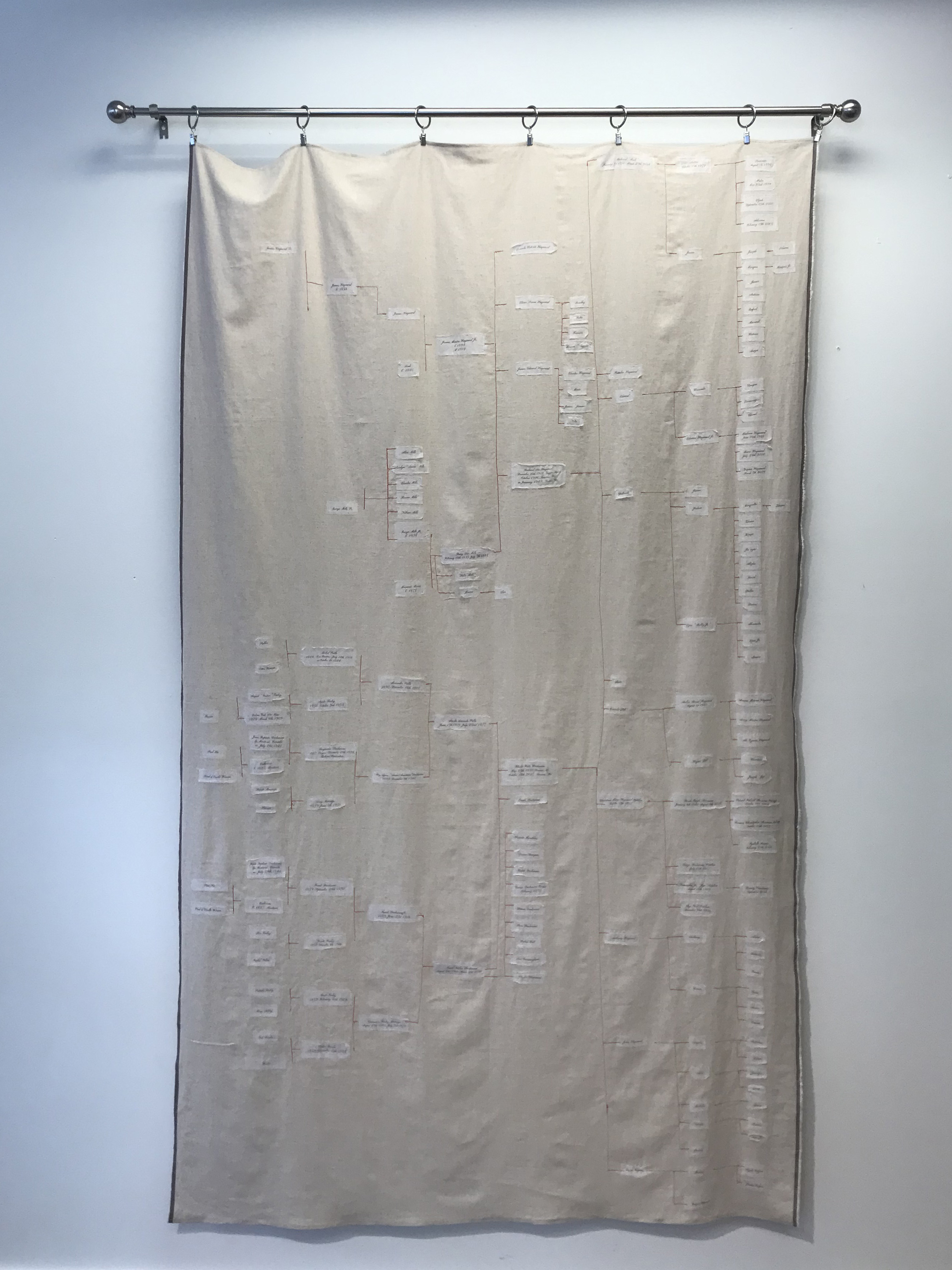Missing Rhoda
Paige Pettibon, Rhoda Hayward
950 Gallery, Tacoma
I keep seeing the word unprecedented around but world altering pandemics don’t always feel that way to Indigenous folks. Call it blood memory, or just a daily awareness of how this country first came to be colonized, but something feels familiar here. A surreal inevitable loop. It’s almost a relief to know the waiting was real.
Seeing Rhoda at 950 Gallery was my last normal day before all the closures and gathering restrictions. Organized by Paige Pettibon, the exhibition features her work alongside pieces by her grandmother, Rhoda Hayward, and many members of their extended family. Until her passing in 2017, Rhoda was constantly creating and gifting in community, but this is the first time her artwork has been shown publicly. This is Paige’s first time curating and showing a large body of her own work too.
On display are Rhoda’s finished and unfinished beading projects, crocheted swatches, and collected tchotchkes from her home, including a recreation of her fireplace mantel complete with a painting of Black Jesus on velvet and well-loved rosaries hanging above. Hayward relatives have contributed several artworks to the show. Some were created recently, others were given to Rhoda over the years, in mediums and styles as varied as any family. Paige holds it all together. From beadwork to quilting to painting, she works in and out of many cultural references fluidly, transcending medium. A family tree laid out in red thread on canvas is draped next to a portrait of Rhoda. Triangular sewn sculptures are reminiscent of reliquaries or parfleche packages, holding little mounds of dirt collected from places of importance. Paige’s earrings and medallions are mixed in with her grandma’s. Any one of these pieces could lead to an entirely new series of work. Catholic symbols, Native imagery, western and intertribal materials, are all shown together without judgement. Everything is part of the story of this family and so everything is precious.
My favorite pairing is a crocheted backpack and a series of miniature cradleboards. Rhoda created custom backpacks for each of her children, and children’s children in turn. The one in the gallery is dark green with neon trim and carefully labeled pockets for scissors, an eraser, glue, and other elementary reminders. On an opposite wall hang cradleboards created by Paige to represent her 10 aunts and uncles. Each is unique, whether luxurious with all white fringe, or fitted with tufts of fur and dangling beads. Like the backpack, they are made for holding things. Cradleboards are used by Plains women to carry babies. A traditional variation by a young artist on a modern creation that her grandmother made. Time isn’t linear, Indigenous people know, we are our ancestors as much as they are us. Dipping in and out of the past as she pleases, Paige made cradleboards for babies long grown, some she never knew. They feel somehow sad but also like a plan for the future, a miniature blueprint. Too small for any baby, divorced from the context of the body, they become psychological in scale. We could bring them with us in a pocket. Cradleboards for a spirit or an idea. Always empty, these ones read as metaphors for womb and death, ready for carrying invisible heavy things like culture or history or a family’s grief. The tiny vessels could represent all the artist brings with her whenever she makes something, not only as an individual, but as part of a community.
As we face a world where we may soon lose many more Elders, I wonder if Rhoda could be a model for a kind of art making that might still manage meaning in times of trouble. Shows for families to remember someone with love. A show that makes a gallery look and smell like your grandma’s living room. If we don’t make it maybe the objects will. Art for another new world.



Asia Tail is an artist, curator, and arts organizer based in Tacoma, Washington. She works as the Program Manager for Native Action Network, and as a freelance creative consultant for local organizations. Asia is a citizen of the Cherokee Nation of Oklahoma, and a proud member of the diverse urban Native community in the Pacific Northwest.